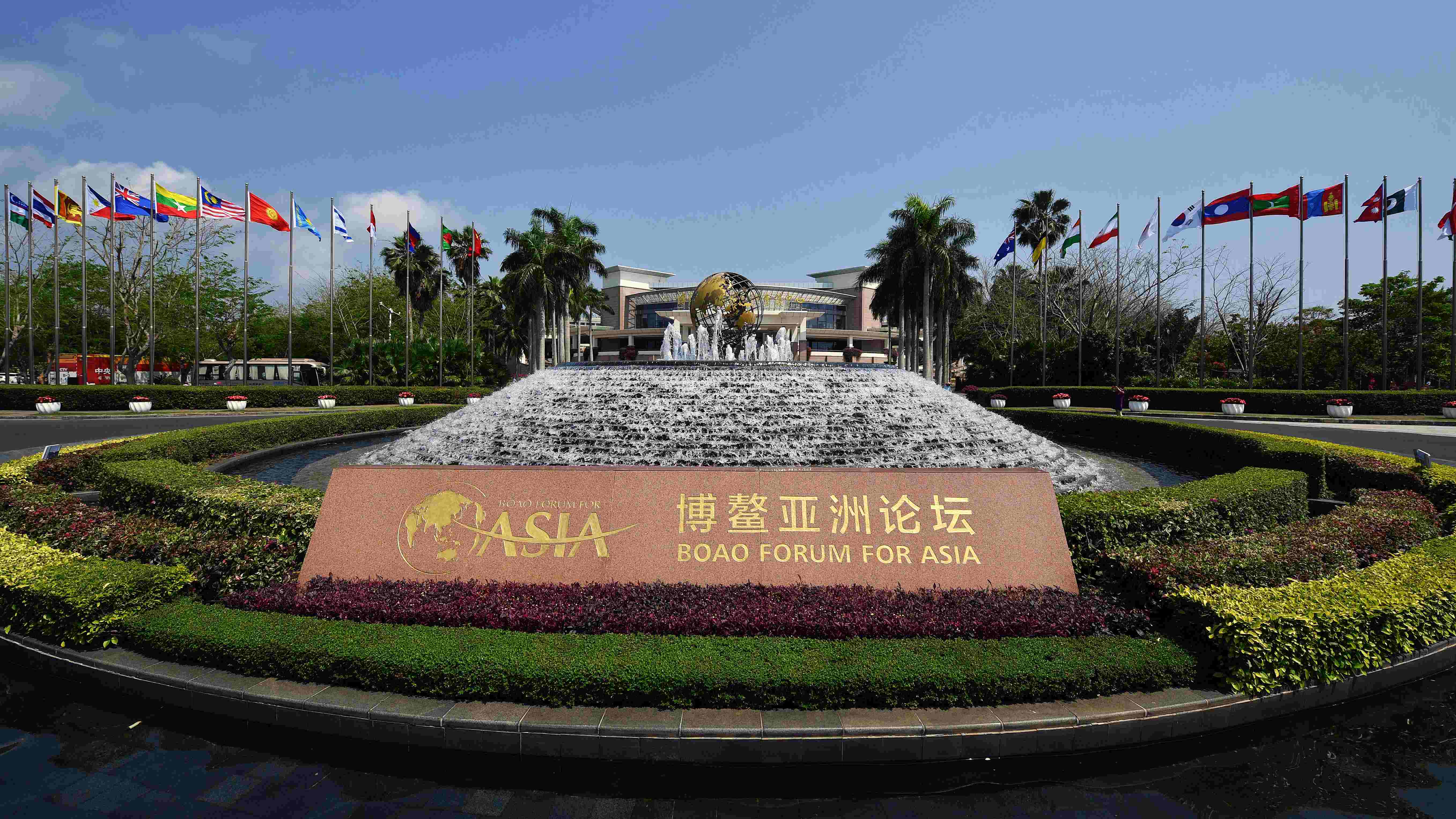
The International Conference Center in Boao Town, Qionghai City, south China's Hainan Province. /Xinhua
The International Conference Center in Boao Town, Qionghai City, south China's Hainan Province. /Xinhua
Editor's note: Timothy Kerswell is a research fellow at the Chinese University of Hong Kong (Shenzhen). He lived in Macao for seven years, working as an assistant professor at the University of Macao. The article reflects the author's opinions and not necessarily the views of CGTN.
Can a handful of developed countries with a Cold War perspective set the terms of global order, or will a world of cooperation and co-existence win out?
In the keynote speech to the opening plenary of the Boao Forum for Asia (BFA) annual conference 2021, Chinese President Xi Jinping highlighted the critical risks to humanity's continued prosperity, including hegemonic thinking, unilateralism and a Cold War mentality. He once again put forward China's message emphasizing both the sovereignty and diversity of nations and their ability to work in partnership to accomplish the common goals of humanity.
President Xi unambiguously stated China's position that we have moved irreversibly to a multipolar world. Implicit in his speech is that the past 30 years of U.S.-led Western domination have now ended. Despite this reality, it seems there is a lagging consciousness both in terms of global governance but also in the attitudes certain historically relevant powers hold toward the sovereignty of developing countries.
The statement that "justice is needed in today's world, not hegemony" not only acts as a valuable critique of the past, but also points the way forward for cooperation based on human needs.
Saying that "bossing others around or meddling in others' internal affairs would not get one any support" might still be an aspirational statement, as the United States and its cabal of willing sycophants find it difficult to kick old habits.
This small grouping appears to relish the opportunity to interfere in the internal affairs of other countries as can be seen in their recent behavior with China over issues in the Chinese territories of Xinjiang, Hong Kong and Taiwan, but also in other places including Russia, Syria, Iran and the Democratic People's Republic of Korea.
Still, the sentiment of President Xi's quote rings true. The concept of the "international community" is often abused by the Western powers as a way of representing their opinions as being global opinions. However, the true international community, the overwhelming majority of the developing countries, and thus the overwhelming majority of the world's people support China's and its resolute advocacy of the principle of sovereignty.

The scenery of Boao Town, south China's Hainan Province, April 8, 2021. /Xinhua
The scenery of Boao Town, south China's Hainan Province, April 8, 2021. /Xinhua
Without a doubt, the international system as we know it today was an institutional design made by and for the Western powers. President Xi rightly noted that the international system needs to evolve in line with changing international situation. In particular, the vibrancy and significance of Asia is underrepresented in the way international institutions work.
However, China and the rest of Asia are not waiting for the West to catch up. Whether in fora such as the BFA, or as announced in President Xi's speech, the upcoming second Conference on Dialogue of Asian Civilizations, the emerging countries of the 21st century are building and sharing their rich histories and cultures, but also their capacity for governance.
In a cautionary note, the speech also referred to the challenge of unilateralism. Despite overrepresentation in international institutions, the United States and its client states have demonstrated that they will swiftly turn on these institutions when they fail to serve U.S. interests sufficiently.
I remember well in my formative university years how the U.S. changed the Middle East for the worse by invading Iraq against widespread global opposition. Not much has changed since then, as can be seen by the U.S. withdrawal from the World Health Organization in 2020.
While U.S. President Biden reversed this decision, it would take a brave person to speak with confidence and say that we've seen the end of U.S. unilateralism. Despite this, both the speech of President Xi and institutions like the BFA point the way forward to the possibility of a more collaborative future.
With many countries continuing to struggle under the pressures of COVID-19, China's success in controlling the virus has enabled it to act as a pillar of stability. President Xi's speech acts as an important signal that China is willing and able to cooperate with other countries, and return the world to a more prosperous path.
Practical steps, like collaboration in response to the COVID-19 pandemic, and efforts to address climate change by promoting green development and cooperation are all opportunities to build solidarity and genuine multilateralism, leaving hegemony in the past.
(If you want to contribute and have specific expertise, please contact us at opinions@cgtn.com.)

